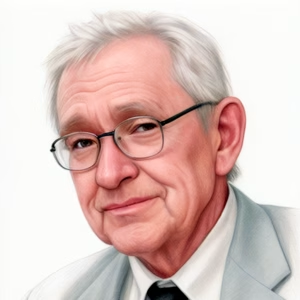
Edward Elmer Smith (May 2, 1890–August 31, 1965) was a name that would become synonymous with the burgeoning genre of space opera in the early to mid-20th century. Born in Sheboygan, Wisconsin, Smith’s early life offered little hint of the vast interstellar landscapes he would later conjure. He pursued chemical engineering, earning a PhD and working primarily in food chemistry, including the development of pastry mixes—a practical background that would deeply inform the meticulous detail with which he constructed his fictional universes.
Smith’s impact on science fiction is undeniable. Before Smith, the field often leaned toward social commentary or cautionary tales. By the time The Vortex Blaster appeared in Comet magazine in July 1941, Smith had already helped define the genre of space opera with stories like The Skylark of Space and Galactic Patrol. But Vortex Blaster, with its focus on atomic physics gone awry and the immediate threat to Earth, captured the anxieties of the era while simultaneously offering an escape into a future brimming with possibility.
Smith’s style was distinctive—characterized by lengthy descriptions, complex scientific jargon (often invented or extrapolated), and a relentlessly optimistic tone. He wasn’t concerned with the subtle nuances of character development in the same way contemporaries like Robert Heinlein were; instead, he prioritized action, spectacle, and the sheer scale of his narratives. Where Heinlein explored the human condition through challenging social scenarios, Smith built worlds defined by their technology and the moral clarity of his protagonists. His prose, while sometimes dense, possessed a rhythmic quality, building momentum like a runaway starship. It was a style that resonated with readers hungry for escapism during times of global uncertainty.
Smith’s influence extended beyond simply popularizing space opera. He created a template for future authors—the concept of galactic federations, powerful psychic abilities, and technologically advanced weaponry became staples of the genre thanks to his pioneering work. Authors like Isaac Asimov acknowledged Smith’s impact, recognizing him as a foundational figure in shaping the modern science fiction landscape.
Though often criticized for its simplistic characterizations and occasionally convoluted plotting, Edward Elmer Smith’s legacy remains secure. He didn’t just write stories; he built universes—vast, exhilarating, and brimming with adventure—that continue to inspire readers and writers alike. His work stands as a testament to the power of imagination and the enduring appeal of galactic romance.